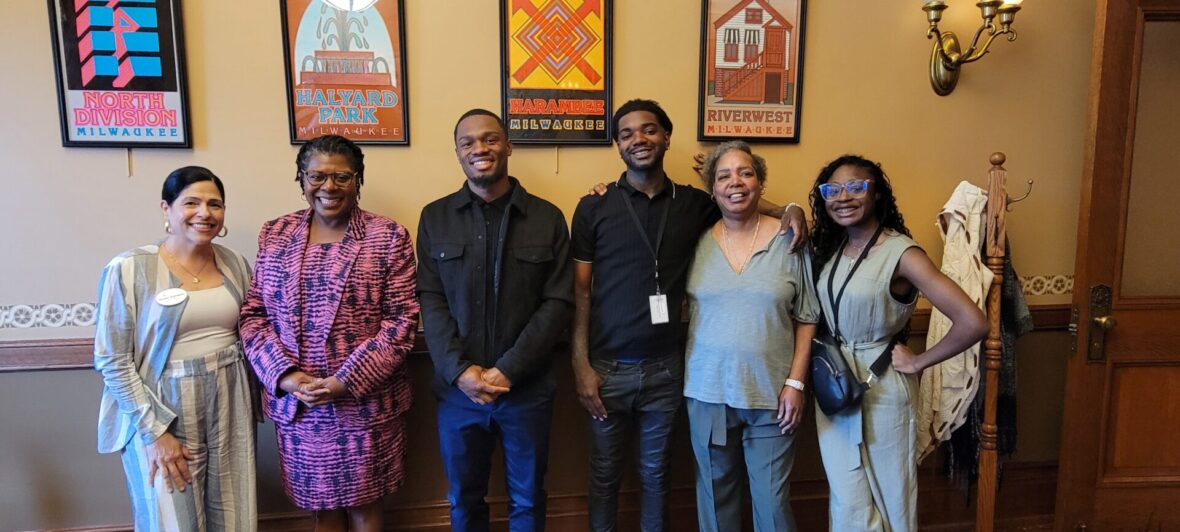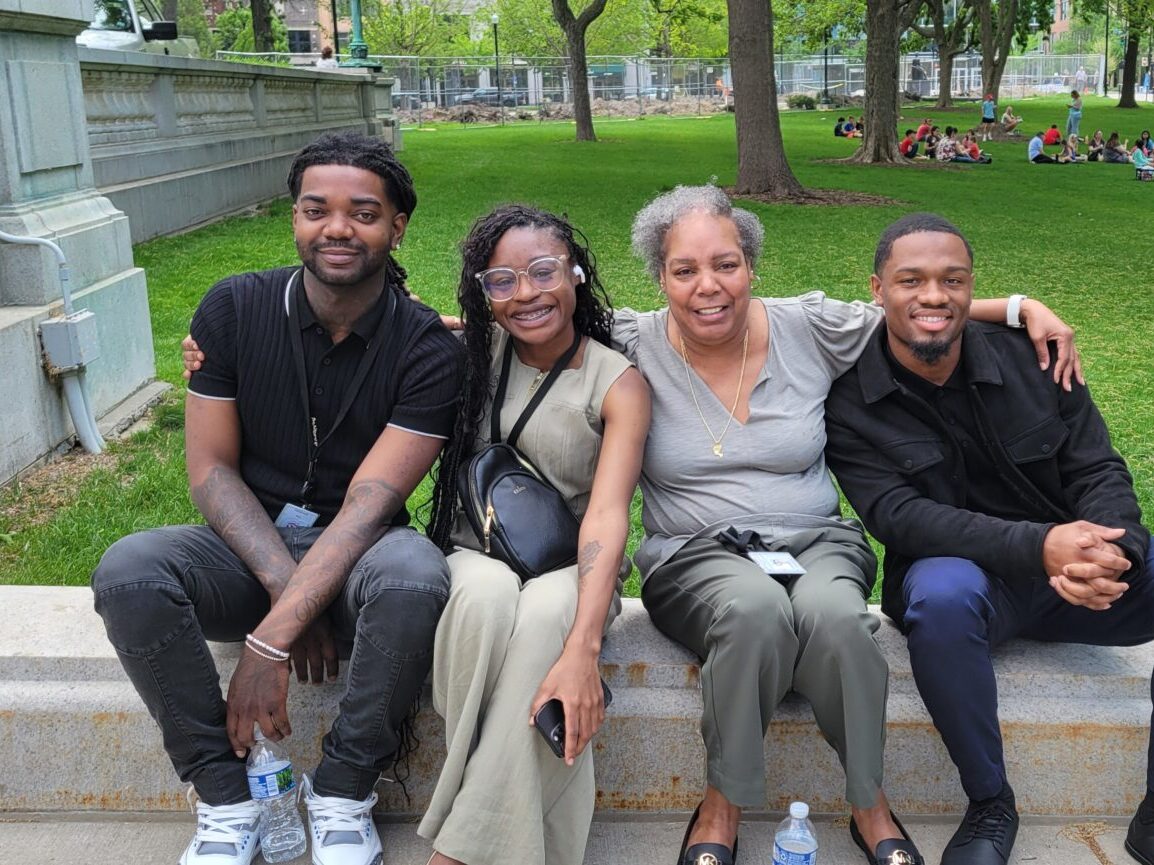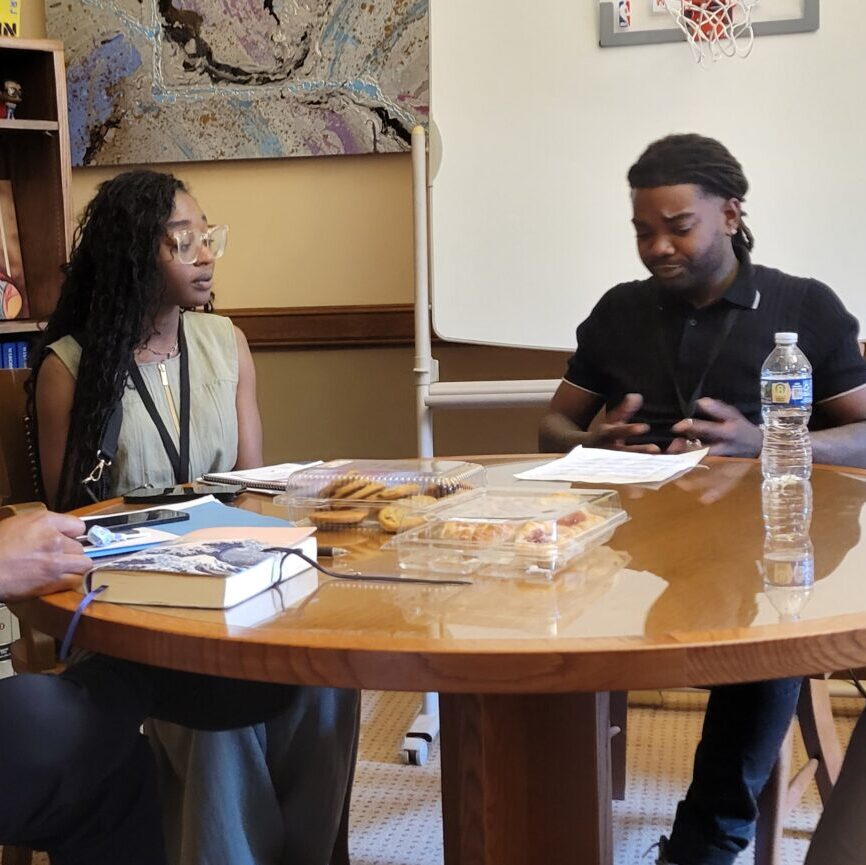Advocating for Change: Youth Advisory Council Seeks Additional Funding and Support from State

When youth age out of foster care, it’s far too easy for them to fall off the grid and not have access to much-needed services.
That’s where Wellpoint Care Network’s Youth Transitioning to Adulthood (YTA) program comes in — providing the guidance, support and resources that foster youth need to build emotional resilience, develop life skills and access the education, employment, healthcare and housing opportunities that will lead to a healthy independent adulthood.
Because of that additional support and guidance they receive, some members choose to give back and advocate for change within the foster care system for younger youth.
“I don’t feel like kids in foster care are heard or understood,” said Angel Shelton, YTA member. “I’ve been through it, I have that first-hand experience, I can relate.”
That’s why Shelton is a member of Wisconsin’s Youth Advisory Council (YAC). YAC consists of former and current foster youth who provide a voice for all foster youth across the state. YAC’s mission is to work with governmental systems to inspire change through education, advocacy, training and awareness. They also work to improve the image of foster youth by addressing foster care issues. Members of Wellpoint Care Network’s YTA program are encouraged to participate in YAC.
“It’s an empowering and safe space,” Shelton adds. “It gives me a sense of peace to come in and advocate for the next child — what they need and what they want.”
“As part of YAC, my voice matters,” added Qavantee Mitchell, YTA and YAC member. “It mattered before, but now it also matters in different rooms. It boosted my confidence, ambitions, motivation and goals. It’s proven to me that I can achieve a lot more than I thought I could.”

This year, one of YAC’s main focuses is additional mental health resources for kids in foster care.
“Mental health is what carries you,” said Shelton. “As someone who went through an inpatient stay, I don’t wish that on anyone else. When you don’t have support from those around you or have access to a therapist or other tools, I felt stuck. When you feel stuck, you often make irrational decisions. Kids in foster care need that additional support.”
“If we can get kids access to mental health resources at an earlier age then they are better prepared when the time comes to age out of foster care,” said Wellpoint Care Network Independent Living Supervisor and YAC Advisor Christine Woods. “Then by the time they get to YTA, they can use that strong foundation to focus on other key areas like education and housing.”
Another focus this year is on extending access to Education and Training Voucher (ETV) funds to age 26. The funds, which can go towards schooling for those who have aged-out of foster care, currently cuts off at the age of 23.
“Housing is often the most important thing for youth when they age out of foster care,” added Woods. “They’re not thinking about school, they’re thinking about a roof over their head. If we can extend funds to be available through the age to 26, then someone has the option to decide they want to go back to school at the age of 22 and still have four years to get a degree.”
“For someone not in foster care, you often have your parents or other family members to lean on for support after you turn 18,” said Mitchell. “Kids in foster care don’t have that. At 18, we are still young and figuring out what we want to do. When we are learning how to navigate life on our own and get our basic needs met, college isn’t always a priority. This would give youth more time to figure things out.”

In any given year, an average of 80 youth age out of foster care in Milwaukee County alone. Programs like YTA are crucial to supporting youth in those early years of adulthood. That’s why another focus of YAC is always pushing for additional funding to ensure programs like these can help as many people as possible.
“As a 20-year-old who is independent, I can’t imagine not having the guidance or resources that this program provides,” said Shelton. “I’m still in college, still figuring out my future and making important decisions. Having someone there to help pick me up when I fall short or even just to reach out to when I need advice has been so important.”
Aside from state funding, donor funds ensure we can offer monthly workshops, college tours and access to Home Starter Kits and personal supplies. They also fund the Employment and Education Assistance Fund, which helps with basic expenses like college application fees, bus passes, driver’s license fees and special tools or clothing needed for a particular job ― small expenses that add up to create huge barriers for low-income foster youth without family support. Donate to YTA today at wellpointcare.org/donate.








